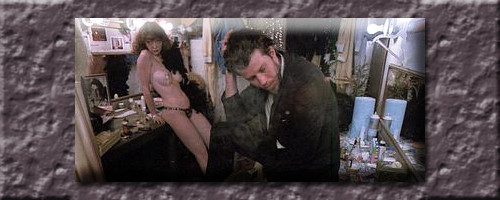

“Jitterbug Boy” isn’t the best song Tom Waits has ever written. It’s not even the best song on his splendid Small Change album – that honour goes to the simply phenomenal “Tom Traubert’s Blues (Four Sheets To The Wind in Copenhagen)”. It’s not as memorably clever and self-deprecating as “The Piano Has Been Drinking (Not Me)”, nor is it as stunning a composition as “An Invitation To The Blues”. It wasn’t picked to be part of Scarlett Johansson’s uneven covers album – that privilege went to “I Wish I Was In New Orleans”, the song that directly follows “Jitterbug Boy” on Small Change. It didn’t make the cut on his Used Songs or Asylum Years greatest hits collections.
But I think it might be my favourite early Tom Waits song.
(For those who aren’t familiar with the Waitsian ouevre, “early” would constitute anything recorded before his transformative 1983 masterpiece, Swordfishtrombones.)
Oh, sure, it’s the kind of song Waits can toss off in ten minutes or so: a pretty piano melody, playing host to a finely-honed character study, sung in Waits’ famous, inimitable growl. Compositionally, there’s nothing particularly unique going on – there’s no chorus to speak of, and the verses all follow much the same structure. But it’s the only instance I can think of where the character himself makes me love the song.
This guy – the guy Waits’ is “playing”, the titular Jitterbug Boy – is a talker. You know the kind: he tells tall tales, shaggy dog stories, anything he can think of just to have your ear for minute. And his situation is either tragic or perfect – I haven’t quite been able to decide yet. He tells us in the first verse that he used to be in showbiz, but now he’s standing “by the shoeshine, resting on my laurels and my Hardys too”.
The next three verses are dedicated to spelling out his accomplishments during his glory years. I won’t list them all here, but they tell quite a story. He saw the Brooklyn Dodgers play Ebbets Field; he says he slept with the lions, then adds “and Marilyn Monroe” as if it’s a meaningless footnote; he burned hundred dollar bills, and got drunk with Louis Armstrong, and taught Mickey Mantle everything that he knows.
So at this point, we’re pretty confident he’s a grade A bullshitter. Of course he is. But he doggedly keeps up the pretense. It’s the repetition that seals the deal: he’s not standing on a street corner because he’s a bum, he’s “holding up a lamp post”, as he tells us twice in the song. And the last verse shows his state of mind – he’s tossing a coin to decide his future. “If it’s heads I’ll to Tennessee, and tails I’ll buy a drink; if it lands on the edge I’ll keep talking to you.”
You want that coin to land on its edge. You want him to keep telling his tales. And you know that if he ever went to Tennessee, he’d be standing outside a bar telling the exact same stories; that if he goes to buy a drink, the lucky person at the next stool will be hearing them. And despite the fact that everything he’s told you has most likely been a gigantic lie, you’d like to believe that it’s true: that he really did fight Rocky Marciana and play Minnesota Fats and sleep with Marilyn Monroe.
But, on the other hand, he’s probably just as happy telling the stories as living them out.


